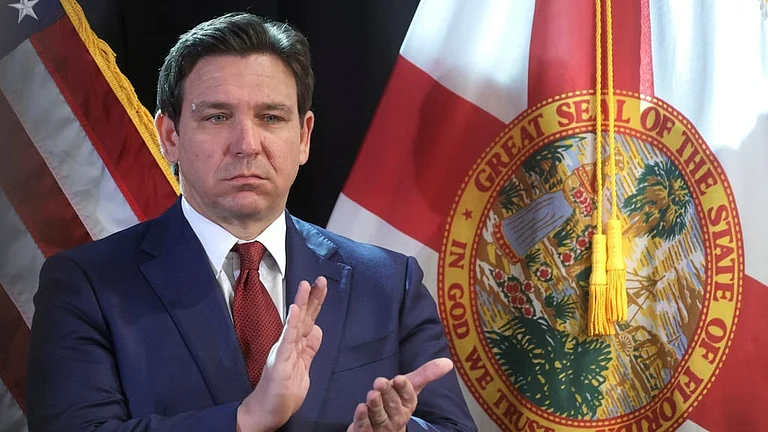Florida's highest court has cleared the path for the enforcement of the state's six-week abortion prohibition while simultaneously granting voters the opportunity to voice their opinions on the matter.
Florida Supreme Court Upholds 15-Week Abortion Limit, Paves Way For Six-Week Ban- But Voters Get The Last Say
Florida's Supreme Court upholds a 15-week abortion limit while greenlighting a six-week ban, setting the stage for a pivotal voter decision in November.
The justices have upheld the state's existing 15-week abortion restriction in a decision that allows for the subsequent implementation of the six-week ban.
However, the court has also authorized Floridians to cast their votes in November regarding whether abortion rights should be sealed in the state constitution.
Despite widespread support for legalized abortion among Americans, there is also a majority in favor of imposing limitations.
The inclusion of an abortion-related ballot initiative could galvanize liberal voters in a crucial presidential swing state that has been leaning conservative in recent elections.
In a 6-1 ruling on Monday, Florida's justices appointed by Republicans determined that the state's constitution, particularly its privacy protections, did not extend to abortion access.
This decision upholds Florida's existing 15-week abortion restriction, which was enacted in 2022.
Governor Ron DeSantis, a Republican, signed a six-week abortion ban into law last year, with provisions ensuring its enforcement would await the resolution of legal challenges against the 15-week ban.
With Monday's ruling, the six-week ban could become effective within the next 30 days. It's worth noting that many women are unaware of their pregnancies at six weeks.
Planned Parenthood and the American Civil Liberties Union, among other organizations, were involved in the lawsuit contesting the ban.
In a separate ruling issued on Monday, the Florida Supreme Court voted 4-3 in favor of allowing a proposed constitutional amendment safeguarding access to abortion in the state to be included on the November ballots, coinciding with the US general election.
The ballot measure will present Floridians with a choice to either vote 'yes' or 'no' on a statement stating: "No law shall prohibit, penalize, delay or restrict abortion before viability or when necessary to protect the patient's health." Viability refers to when a fetus, or unborn child, could potentially survive outside the uterus, commonly around 24 weeks of gestation.
Additionally, it clarifies that "this amendment does not change the Legislature's constitutional authority to require notification to a parent or guardian before a minor has an abortion."
Governor DeSantis and Florida's Attorney General Ashley Moody, both Republicans, opposed the ballot question.
States such as Ohio, Michigan, and Kansas have passed ballot measures supporting abortion rights since the US Supreme Court overturned a longstanding nationwide abortion right in 2022.
Approval of a constitutional amendment in Florida requires the support of 60% of voters, a higher threshold compared to other states.
Should the amendment pass, voters could effectively overturn both the 15-week and six-week abortion bans.
US President Joe Biden, a Democrat, reportedly sees Florida's abortion debate as a potential avenue to victory in the state this November.
According to a memo shared with NBC News, the Biden campaign believes Florida is "winnable" for the president if he emphasizes the issue.
Former US President Donald Trump, Mr. Biden's Republican opponent, secured victories in Florida during both the 2016 and 2020 elections.

